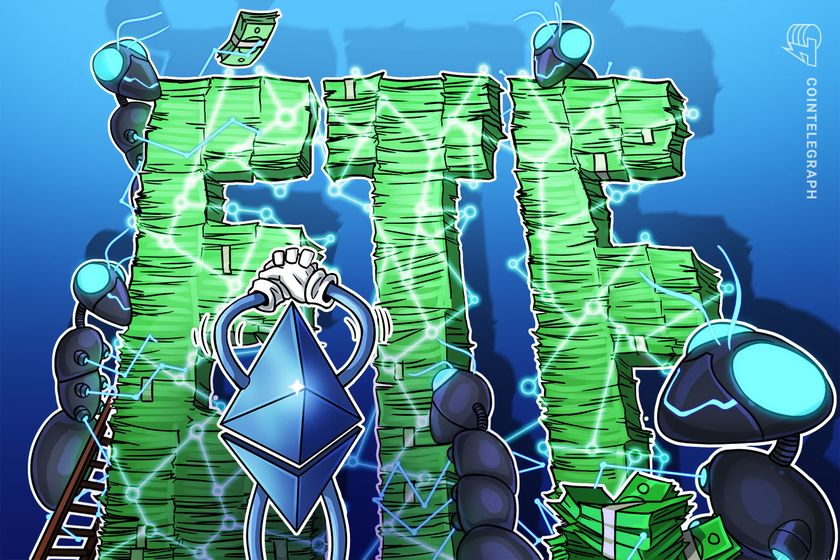Ethereum traders show uncertainty ahead of Apr 12’s Shapella hard fork: Report

Ether’s market performance and derivatives metrics have lagged behind Bitcoin, possibly due to traders’ expectation of heavy sell pressure after the Shapella upgrade.
The Ethereum network’s Shapella upgrade, scheduled for around 10:30 pm UTC on April 12, has induced significant uncertainty among traders, according to a report by Kaiko.
The upgrade will enable staked Ether (ETH) withdrawals from the Beacon Chain for the first time since its launch in December 2020. According to previous estimates, the upgrade will add nearly 1.2 million to 3 million worth of ETH selling pressure in the first few weeks. This is one of the main reasons traders appear to be taking a cautious stance ahead of the upgrade.
Kaiko’s report shows that ETH is lagging behind Bitcoin (BTC) in spot and futures trading volumes, while options market data shows traders are actively adding short-term hedging positions.
Ether displays muted trading data
Ethereum’s market share in U.S. dollar trading volume compared to Bitcoin declined to March 2021 lows near 30%, per Kaiko data, showing that Ether has “struggled to maintain pace” with Bitcoin spot volumes. During Ethereum’s last big upgrade, the Merge, its market share relative to Bitcoin reached a high of 53%.
Similarly, the relative increase in the open interest (OI) volumes for Bitcoin has surpassed Ethereum considerably with the April 10 price surge above $30,000.
The ratio between Ethereum’s spot and perpetual trading volumes also reflects the lack of trading interest. The ratio has dropped below the levels attained before the Merge.
Lastly, the options market also reflected the uncertainty around the upgrade. The report found that the implied volatility for Ethereum options contracts expiring in April has trended higher than all timelines for Bitcoin. It suggests that an increasing number of traders are looking to hedge their positions.
When the demand for options increases, it implies that the market expects greater price swings in the underlying asset and, therefore, higher implied volatility. The report added:
“All ETH expiries have moved closely with one another while the longer BTC expiries have remained stable, again indicating that there is more uncertainty—particularly in the long term—in the ETH derivatives markets.”

Related: Shapella could bring institutional investors to Ethereum despite risks
So far, Bitcoin’s price has increased 82.02% year-to-date compared to Ether’s 59.82% surge in the same period. The ETH/USD pair faces resistance at $2,000 from the technical and psychological points of view. The Moving Average Convergence and Divergence indicator, a momentum oscillator, has remained flat through Ether’s latest price rise, showing a lack of bullish momentum.
Ethereum’s falling market share compared with Bitcoin and muted trading interest relative to the Merge highlights the uncertainty in the market due to potential selling pressure after Shapella.
The lack of trading volumes and high options implied volatility can induce significant price volatility over the course of the month, especially when considering that sell pressure is expected to last for three to eight weeks after the upgrade.
The views, thoughts and opinions expressed here are the authors’ alone and do not necessarily reflect or represent the views and opinions of Cointelegraph.
This article does not contain investment advice or recommendations. Every investment and trading move involves risk, and readers should conduct their own research when making a decision.









